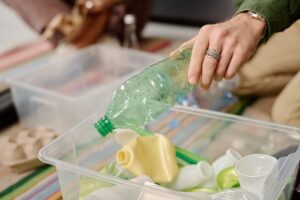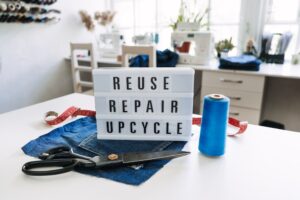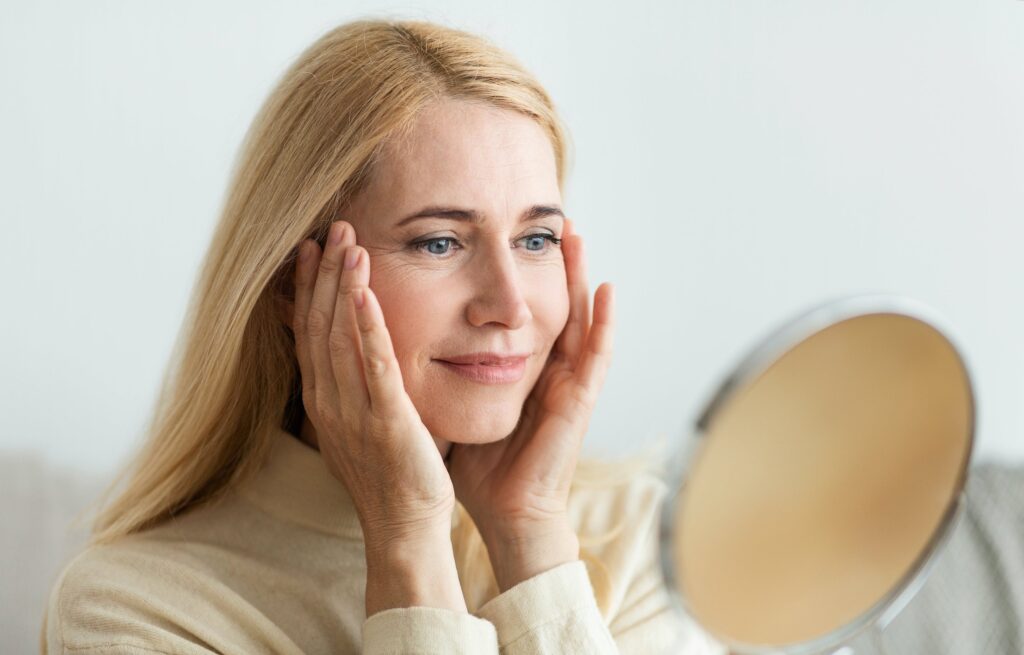Your skin is your body’s largest organ and is a barrier between your body and the environment. It is also one of the first places where the signs of aging become visible. While some aging is inevitable, there are steps you can take to slow down the aging process and minimize the impact of environmental factors on your skin.
In this article, we’ll explore some of the key factors that can contribute to premature skin aging, as well as tips for preventing premature aging and minimizing the impact of environmental damage on your skin.
Factors that Contribute to Premature Aging of the Skin
Pollution
Exposure to pollution, such as air pollution and UV radiation, can form free radicals in the skin. These free radicals can cause damage to the skin cells and accelerate the natural aging process. Specifically, pollution can cause oxidative stress in the skin, leading to collagen and elastin fibers breakdown. Collagen and elastin are essential proteins that help maintain the skin’s structure and elasticity.
UV radiation
Exposure to UV radiation from the sun can cause damage to the skin cells and accelerate the breakdown of collagen and elastin fibers. To prevent this, it is important to wear sunscreen with at least SPF 30 every day, even on cloudy days, and limit sun exposure.
Smoking
Smoking can decrease blood flow to the skin and impair the delivery of essential nutrients and oxygen to the skin cells. This can lead to a breakdown of collagen and elastin fibers, as well as a dull, uneven complexion. Quitting smoking can help to improve the health and appearance of your skin.
Poor diet
A diet high in processed foods and sugar can contribute to inflammation in the body, accelerating the breakdown of collagen and elastin fibers. Eating a healthy, balanced diet that includes plenty of fruits, vegetables, and lean protein can help support your skin’s health.
Stress
Chronic stress can increase cortisol levels in the body, which can contribute to a breakdown of collagen and elastin fibers. Practicing stress-reducing activities such as yoga, meditation, or deep breathing can help reduce stress’s impact on your skin.
Tips for Preventing Premature Aging and Minimizing Environmental Damage
Adopt a healthy lifestyle
Regular exercise, a balanced diet, and stress management techniques can all help support your skin’s health. Exercise can help improve circulation, delivering essential nutrients and oxygen to the skin cells. A balanced diet that includes plenty of fruits, vegetables, and lean protein can help to provide the nutrients your skin needs to stay healthy. Stress management techniques such as yoga, meditation, or deep breathing can help reduce stress’s impact on your skin.
Use effective skincare products
Skincare products that contain antioxidants and beneficial ingredients such as retinoids, vitamin C, and hyaluronic acid can help to protect your skin from environmental damage and promote healthy skin. Retinoids can help to stimulate collagen production and reduce the appearance of fine lines and wrinkles. Vitamin C can help to neutralize free radicals and protect your skin from pollution and UV radiation. Hyaluronic acid can help to hydrate the skin and improve its texture and tone.
Wear sunscreen
Wearing sunscreen is one of the most effective ways to protect your skin from the damaging effects of UV radiation. Look for a broad-spectrum sunscreen with at least SPF 30 and apply it every day, even on cloudy days. It is also important to reapply sunscreen every 2 hours or after swimming or sweating.
Avoid excessive use of sunscreen
While sunscreen is important, excessive use of sunscreen can contribute to pollution and other environmental issues. Be sure to use sunscreen as directed and avoid using more than necessary.
Minimize exposure to hard water, well water, and saltwater
Hard water, well water, and saltwater can all affect the skin differently. Hard water can leave behind a residue that can dry out the skin and contribute to inflammation. Well, water may contain contaminants that can be harmful to the skin and overall health. Saltwater can be drying and irritating. To minimize the potential negative effects, use a gentle, pH-balanced cleanser and moisturizer, and consider installing a water-softening system or showerhead filter.
Consult a dermatologist
If you have concerns about your skin’s health or appearance, it is important to consult a dermatologist. A dermatologist can help diagnose and treat skin conditions, provide guidance on skincare products and routines, and offer advice on protecting your skin from environmental damage and aging.
Final Thoughts
Protecting your skin from environmental damage and aging is essential for maintaining healthy, youthful-looking skin. Adopting a healthy lifestyle, using effective skincare products, and taking precautions when exposed to environmental factors such as pollution, UV radiation, hard water, well water, or saltwater can help slow down the aging process and keep your skin looking its best.
Remember to be consistent with your skincare routine, wear sunscreen, and consult a dermatologist if you have concerns about your skin’s health or appearance. You can enjoy healthy, beautiful skin for years with a little effort and attention.









Reader Interactions